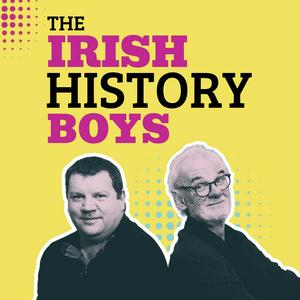In this episode of the Irish History Boys, we delve into the seismic political shift of 1926—the split within Sinn Féin that birthed the Fianna Fáil party. We examine Éamon de Valera’s pragmatic yet controversial move to abandon abstentionism, provided the oath of allegiance was removed, and the pivotal role of his protege Seán Lemass in driving this new movement. We also draw parallels between this 1926 rupture and the Republican movement's similar debate over entering the Dáil sixty years later in 1986.
Additionally, we revisit the 1922 arrest of the Monaghan football team in Tyrone, an event still sparking heated debate in 1926 over whether it was a "wild act" or a legitimate revolutionary mission. We trace the dark consequences of this incident, including retaliatory kidnappings and the escalation of sectarian violence in Belfast, specifically reflecting on the forgotten horror of the Weaver Street massacre, where a grenade attack claimed the lives of children playing in the street.
To conclude, we transition to the cultural tensions of 1976, examining the "mini-referendum" in Craigavon regarding the opening of recreational facilities on Sundays—a direct challenge to the rigid Sabbatarianism of the time. Finally, we reflect on the 1976 Trócaire Lenten campaign, the iconic "Trócaire box," and the enduring, if complicated, legacy of Bishop Eamonn Casey in Irish charitable life.
Hosted on Acast. See acast.com/privacy for more information.


